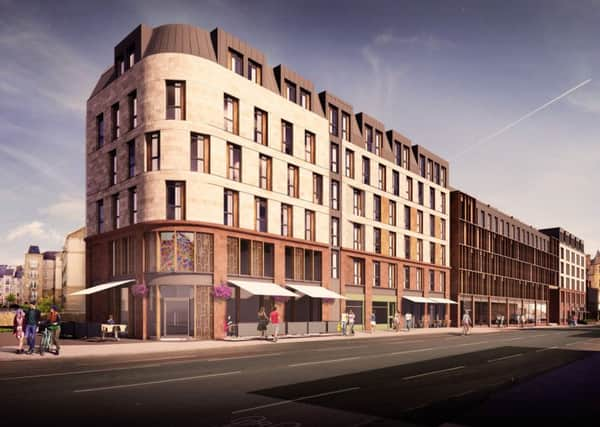John McLellan: Demand on all sides must be met


Initial reaction was of the expected “Just what we need; another hotel and more student flats” variety, understandable given the number of similar schemes and the growing sense that the settled population is being crushed between developments which are not for them and homes becoming less affordable by the week.
Throw in the increasing number of properties turning into short-term holiday lets – 1.1m overnight stays booked through Airbnb and a third with the owners of multiple properties, according to property consultants Colliers International – and there is a relentless scramble for accommodation driven by the city’s popularity as a place to visit, study, work and settle.
Advertisement
Hide AdAdvertisement
Hide AdBut capping one type of accommodation has implications for all the others; cracking down on student flats pushes students into houses in multiple occupation, rejecting hotels makes AirBnB more attractive and doing both eats further into the housing stock. Make hotel and student accommodation readily available in the right locations and it helps relieve pressure on homes.
With more than 30,000 people working in hospitality and 25,000 in post-school education, tourists and students are essential to the city economy as are affordable homes for key workers, but too often the debate in Edinburgh pits one sector against another. Demand in all areas needs to be met.
Don’t complain. The wee soul might get upset
There was an interesting aside from council leader Adam McVey in a discussion about recording complaints this week during the snappily-titled Corporate Policy & Strategy Committee. At issue was whether calls to the council for things like missed bin collections should be logged as a complaint or a “service request”. Clearly, the more calls registered as service requests then the fewer go down as complaints.
Cllr McVey said it was important to get a national perspective from other councils, not “driving up statistics in a way that other local authorities just do not do for no purpose other than to make ourselves feel bad.”
So the next time you complain your bin hasn’t been emptied, you’re not actually complaining but making a service request. And you’ll be making Cllr McVey feel better about his administration too. Aw, the wee soul.
A lesson from Amsterdam
Edinburgh may be bursting at the seams just now, but most of the year it’s quiet compared to Amsterdam, which is swelled by 18 million tourists a year.
The Dutch authorities have just unveiled a new crackdown on rowdy behaviour in the historic centre, issuing police with PIN machines to hand out spot fines of 140 euros to tourists for disorder and littering, and introducing the power to close entire streets immediately for clean-ups and to clear heavy crowds.
We might be a long way from needing instant street shut-downs, but spot fines for littering and anti-social behaviour? Or dog fouling? Might be an idea.
Bin there, done that
Advertisement
Hide AdAdvertisement
Hide AdHaving documented the tortuous process of registering with the Mygov.scot for the privilege of paying Edinburgh Council £25 to empty my garden bin, it was with trepidation I set out to order a new food bin. I am happy to report that having saved the details on the desktop it took seconds, so I don’t have to call with a “service request”. But I wonder how many food bins need replacing because they’ve been chucked across the pavement?
